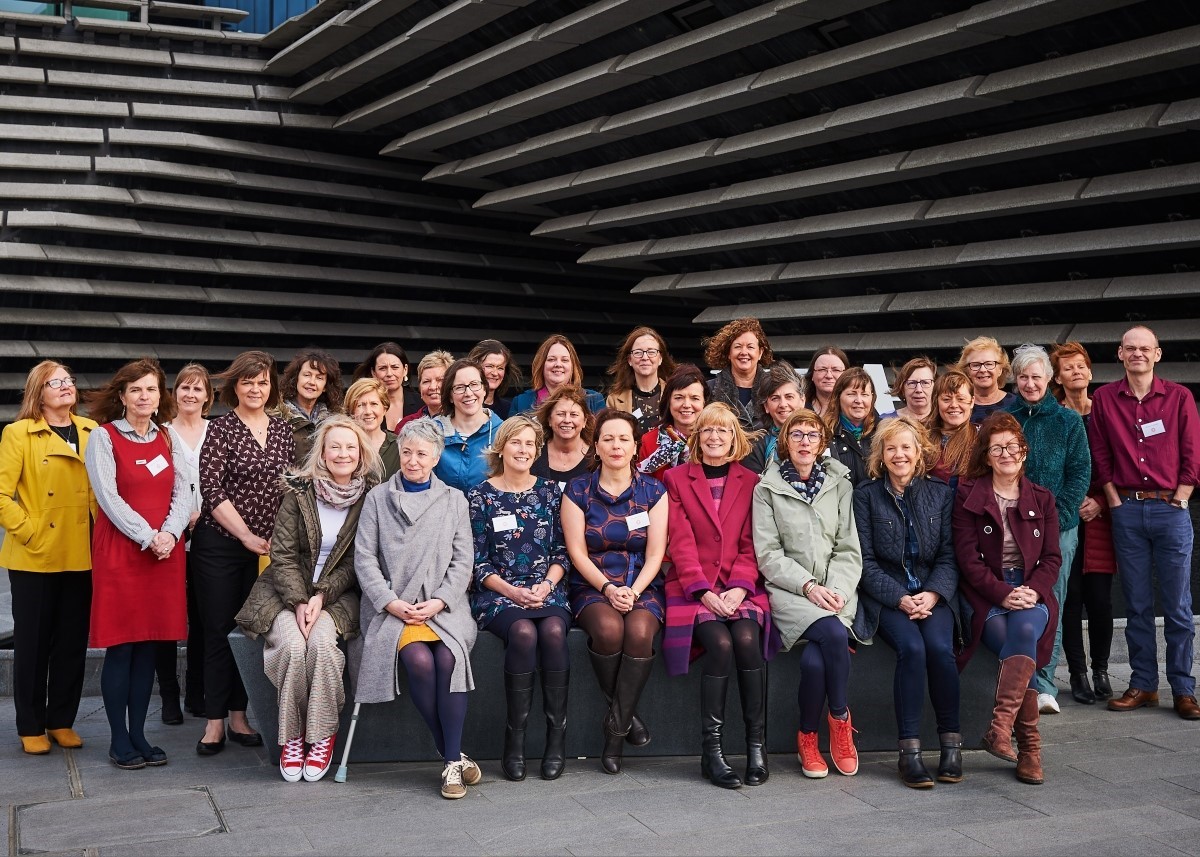In collaboration with others, Breast Cancer Now has supported research into helping women make sustainable lifestyle changes in order to reduce breast cancer risk.
In collaboration with the University of Dundee, NHS Scotland Breast Screening Programme (NHSBSP), leisure trusts and other academic institutions, Breast Cancer Now has supported research into helping women make sustainable lifestyle changes in order to reduce breast cancer risk.

Links between weight and breast cancer
It is currently estimated that at least 23% of breast cancer cases could be prevented, and are related to lifestyle behaviours such as being overweight or obese, alcohol consumption and physical inactivity. We also know that risk of breast cancer increases if you are overweight or obese after the menopause.
In an effort to better understand the risk factors associated with breast cancer, Breast Cancer Now continues to support and fund research to find new ways to prevent people from developing this devastating disease. Our involvement in the ActWELL research trial was an opportunity to be part of something innovative and test what works in relation to prevention interventions focussing on sustainable lifestyle changes.
ActWELL was aimed at lowering breast cancer risk through lifestyle changes in women aged 50 to 70 in Scotland. It was designed to be delivered by volunteers who would support women to make lifestyle changes by focusing on physical activity, diet and body weight. The lifestyle programme was offered to women who attended one of four NHS Breast Screening Centres across Scotland, as it was believed that attending screenings could offer a unique ‘teachable moment’ to understand risk and support them to take action.
Breast Cancer Now’s involvement in the ActWELL study
Breast Cancer Now supported the delivery of ActWELL by recruiting and managing a team of 45 trained volunteer lifestyle coaches. These lifestyle coaches delivered one-to-one sessions in local leisure centres, then followed up with telephone support calls over a 12-month period. This ongoing support helped women taking part in the study to sustain their lifestyle changes while also providing further advice on building healthier habits.
Our volunteers came from a variety of professional backgrounds which provided a diverse mix of skills and experiences to the project. Amongst them were GPs, nurses and dieticians, individuals with a background in education, psychology or counselling, and some who came from the fields of sports, exercise and coaching.
What we learned from our work
Ultimately, we learned that a breast cancer charity can offer volunteer capacity to deliver weight management intervention in a community setting. Over the course of the study, our volunteers were successful in supporting women to make lifestyle changes that could reduce the risk of breast cancer.
Based on our experiences delivering the ActWELL project, we developed our own 'How to' resource: 'A guide to delivering behaviour change projects in community settings through volunteers'. The guide shares our key learnings and considerations for designing and delivering similar projects, which we hope will be useful to other organisations across a variety of settings, especially where projects utilise volunteers providing support in community settings and where multiple stakeholders are involved.
We also learned that we had an abundance of willing volunteers. 170 applicants put themselves forward for the lifestyle coach role, and we would like to thank all of them for their time and effort.

Unexpected benefits
Throughout the study, we found that the coaches themselves benefitted from the experience. Overwhelmingly, volunteers told us that they enjoyed meeting and supporting the women involved in the study, and felt privileged to contribute to important research.
Regardless of their motivation for volunteering on ActWELL, what united them was their belief that the project was worthwhile.
Moreover, by the end of the programme, they had an increased awareness of the links between lifestyle choices and breast cancer risk, made changes to their own lifestyle behaviours, and were able to share this information with friends and family.
‘Once I was working with the participants, I felt I needed to make some changes myself, otherwise I would have felt slightly hypocritical. Walking my talk is important to me,’ reported one volunteer.
Moreover, for some of our coaches, the experience was an opportunity to gain experience and develop new skills. For others, it was chance to practise existing ones.
‘Personally, it has reminded me of the skills I have,’ said another. ‘I feel I have been of help to these women.'
Read our full report on ActWELL.
Hope for the future
At Breast Cancer Now, our mission is to ensure that, by 2050, everyone who has breast cancer lives, and is supported to live well. In facilitating programmes such as the ActWELL study, we are working towards that goal.
However, we are aware that there are many other factors that may increase a person’s chance of developing breast cancer, and we are constantly endeavouring to find out more about these through our extensive research.
Baroness Delyth Morgan, Chief Executive at Breast Cancer Now, said ‘More research is now needed to find ways to help women maintain a healthier weight, but we hope this trial will lead to fewer women being diagnosed with breast cancer in the future. We are proud to have supported the ActWELL trial by recruiting and training volunteers and give our huge thanks to all the volunteers for their support.’
We hope the approach taken in ActWELL could offer supportive action on breast cancer risk reduction by using volunteers in a community setting, offering the potential to address gaps in public health efforts.
For a more detailed insight into our work with ActWELL and information on how to implement the study, please see our How to Guide.